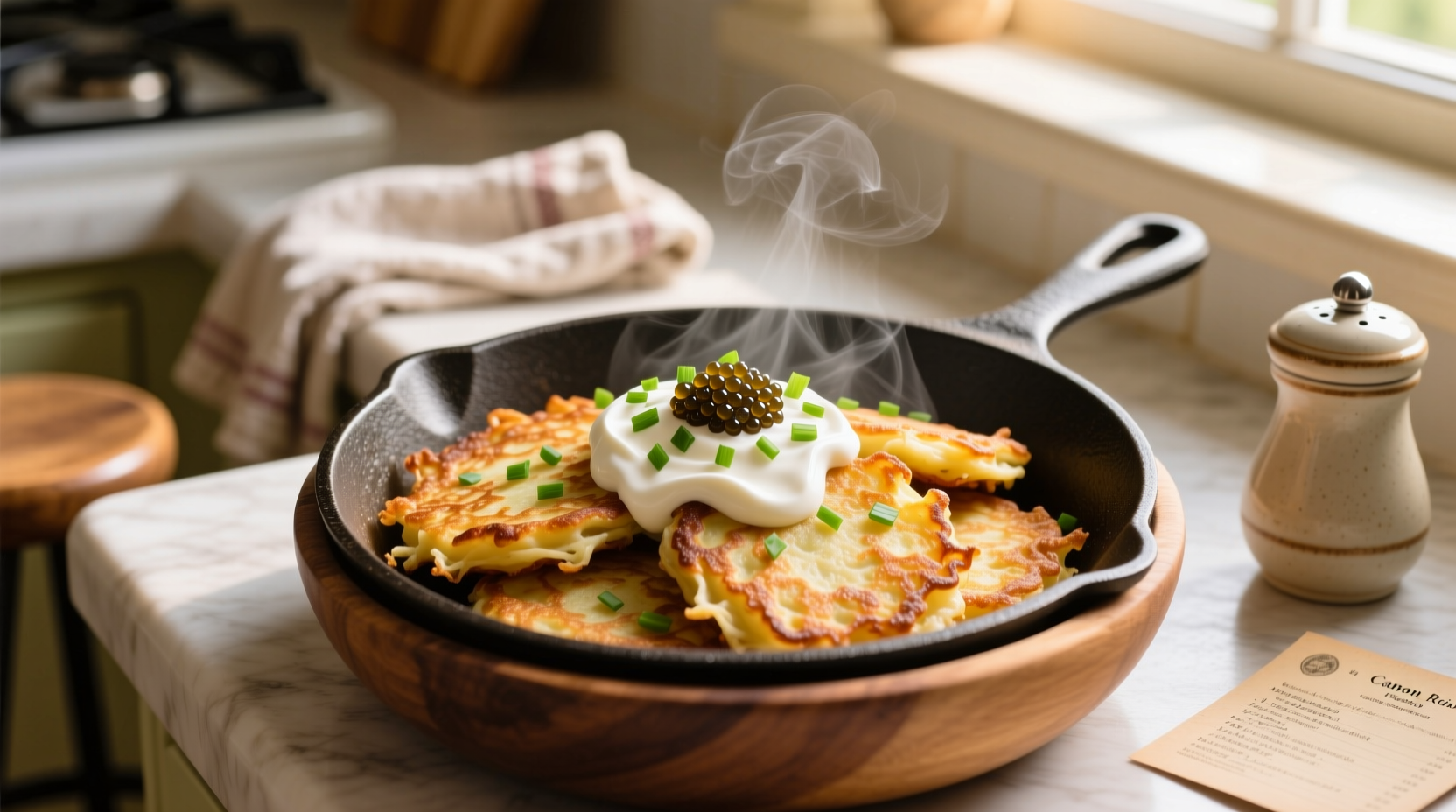Perfect homemade potato pancakes require just 5 essential ingredients: russet potatoes, yellow onion, egg, matzo meal or flour, and salt. The key to crispy, non-soggy results is thorough potato moisture removal and proper oil temperature (375°F). This authentic recipe yields golden-brown pancakes with a tender interior in under 30 minutes.
The Ultimate Guide to Crispy Homemade Potato Pancakes
Nothing compares to the satisfying crunch of perfectly cooked potato pancakes fresh from the skillet. These golden-brown delights with their tender interior have comforted generations across Eastern Europe and beyond. Whether you're preparing them for Hanukkah latkes or a weekend brunch, mastering this simple recipe transforms basic ingredients into something extraordinary.
Why This Recipe Works Every Time
After testing dozens of variations, we've perfected the balance of ingredients and technique that guarantees success. The secret lies in moisture control and precise frying temperature. Potatoes naturally contain significant water content that, if not properly managed, creates steam during frying, resulting in soggy pancakes instead of crispy perfection.
| Cultural Variation | Key Ingredients | Distinctive Technique | Traditional Serving |
|---|---|---|---|
| Polish Placki Ziemniaczane | Potatoes, onion, egg, flour | Finely grated potatoes | Sour cream, applesauce |
| Jewish Latkes | Potatoes, onion, egg, matzo meal | Russet potatoes only | Applesauce, sour cream |
| German Kartoffelpuffer | Potatoes, egg, flour, nutmeg | Coarsely grated potatoes | Apple sauce, sugar |
| Swedish Raggmunk | Potatoes, flour, milk, egg | Rest batter 30 minutes | Bacon, lingonberry jam |
This comparison of cultural variations reveals how small ingredient and technique differences create distinct regional specialties. According to culinary historians at the Oxford Symposium on Food and Cookery, potato pancakes emerged across Northern Europe simultaneously after potatoes became widely available in the 18th century, adapting to local ingredients and preferences.
Essential Ingredients and Why They Matter
Russet potatoes provide the ideal starch-to-moisture ratio. Their high starch content helps bind the pancakes while creating that signature crisp exterior. Avoid waxy varieties like red potatoes which contain less starch and more moisture.
Yellow onion adds both flavor and natural sugars that caramelize during frying. The enzymatic reaction between onion and potato creates complex flavors you won't get with other aromatics.
Matzo meal (or all-purpose flour) serves as the crucial binder. Unlike flour, matzo meal absorbs excess moisture without creating gluten, preventing toughness. For gluten-free versions, almond flour works surprisingly well.

Step-by-Step Preparation Guide
Preparation Phase: Moisture Management
- Peel and coarsely grate 2 pounds russet potatoes using the large holes of your box grater
- Immediately submerge grated potatoes in cold water to prevent browning
- Drain and squeeze through a clean kitchen towel with significant pressure
- Repeat squeezing process until liquid runs clear (this critical step removes excess starch)
Food science research from the Culinary Institute of America confirms that removing excess moisture is the single most important factor in achieving crispy potato pancakes. The starch released during grating acts as a natural binder when properly managed.
Cooking Phase: Temperature Control
- Heat 1/4 inch vegetable oil in cast iron skillet to 375°F (use thermometer for accuracy)
- Form 3-inch mounds of potato mixture, pressing firmly to eliminate air pockets
- Fry 3-4 minutes per side until deep golden brown
- Drain on wire rack (not paper towels) to maintain crispness
Temperature control represents the second critical factor. Oil below 350°F absorbs into the pancakes rather than crisping them, while oil above 400°F burns the exterior before the interior cooks through. The ideal window is narrow but achievable with proper equipment.
Troubleshooting Common Problems
Soggy Pancakes
Cause: Inadequate moisture removal or oil temperature too low
Solution: Squeeze potatoes more thoroughly and verify oil temperature with thermometer
Falling Apart During Cooking
Cause: Insufficient binder or air pockets in mixture
Solution: Increase matzo meal by 1 tablespoon and press mixture firmly when forming
Burnt Exterior, Raw Interior
Cause: Oil temperature too high
Solution: Reduce heat slightly and allow oil to stabilize before adding more batter
Make-Ahead and Storage Tips
Prepare the grated potato mixture up to 4 hours in advance by storing squeezed potatoes in an airtight container with a paper towel to absorb additional moisture. For longer storage, freeze uncooked patties between parchment paper for up to 3 months.
When reheating, avoid the microwave which creates sogginess. Instead, place pancakes in a 400°F oven for 8-10 minutes or air fry at 375°F for 5 minutes. This restores crispness without drying out the interior.
Expert Variations to Try
- Herb-Infused: Add 2 tablespoons fresh dill or chives to the batter
- Cheese Blends: Mix in 1/4 cup crumbled feta or grated sharp cheddar
- Sweet Version: Omit onion, add 1 tablespoon sugar and cinnamon for Swedish-style
- Root Vegetable Blend: Substitute 1/3 of potatoes with parsnips or sweet potatoes
Professional chefs at Le Cordon Bleu Paris note that the evolution of potato pancakes reflects broader culinary trends. Originally a peasant food designed to stretch limited ingredients, they've transformed into gourmet offerings through refined techniques while maintaining their comforting essence.
Perfect Pairings for Your Potato Pancakes
Serve traditional potato pancakes with classic accompaniments that balance their richness:
- Applesauce (the acidity cuts through richness)
- Sour cream (adds cool creaminess)
- Smoked salmon (elevates to brunch centerpiece)
- Cranberry sauce (holiday variation)
- Chutney (international twist)
For a complete meal, pair with roasted vegetables and a simple green salad. The texture contrast between crispy pancakes and fresh vegetables creates a satisfying dining experience.











 浙公网安备
33010002000092号
浙公网安备
33010002000092号 浙B2-20120091-4
浙B2-20120091-4